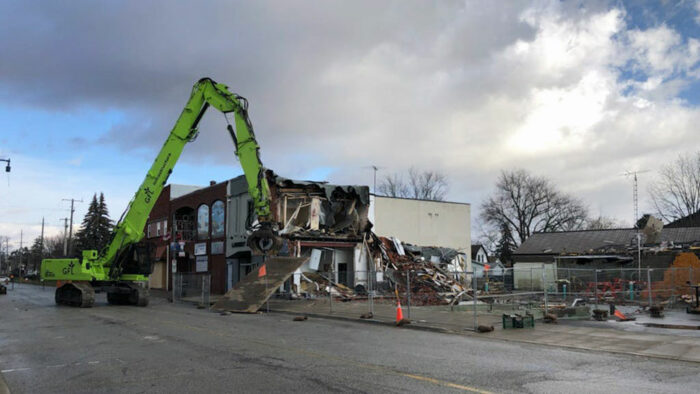
Editor’s note: This is the second story in a three-part series from The Daily Commercial News that takes a look at what has been done since the catastrophe in Wheatley and the answers the were found deep below the ground.
By Mary Baxter
Special to The Voice
To date, the emergency response, investigation and remediation of the Aug. 26, 2021 explosion in Wheatley has cost Chatham-Kent nearly $9 million, with the province having announced intentions to pick up nearly $6 million of the immediate costs, says Don Shropshire, who leads the project for the municipality.
But those immediate costs don’t take in all the time local municipal staff have spent on the situation and could end up being the tip of the iceberg if a class action lawsuit against the municipality and the province goes ahead, the recently retired municipal CAO says.
Shropshire recognizes the situation has raised questions about accountability and how to prevent such an incident from happening again.
He says he has discussed with the province the need for legislation that ensures new development takes old gas and oil wells into account.
“That’s the sort of thing that I think we’d have to work with the provincial government or senior levels of government to develop the corporate (municipal) guidelines or legislation,” he says. “As far as we’re aware, that would be a provincial government responsibility.”
Ryan Doull, a well-integrity specialist based in Alberta who briefly worked on the Wheatley project, says several factors heighten the chances of such an explosion happening again in Ontario compared to his province.
He explains Ontario legislation “did not evolve as quickly over time” as Alberta legislation did because the eastern province’s industry is much smaller. Because of the age of Ontario’s industry, many aging well structures exist. Many of these are close to the province’s large population in the south. Some are covered by surface infrastructure as they were in Wheatley.
Alberta, he says, has introduced measures to ensure public safety. For instance, the Alberta Energy Regulator holds the licensee liable for care and custody of the well throughout its life. If a well leaks or its integrity status is unknown, licensees must perform integrity tests. Wells that fail must be investigated and remediated.
To read on, click here.






